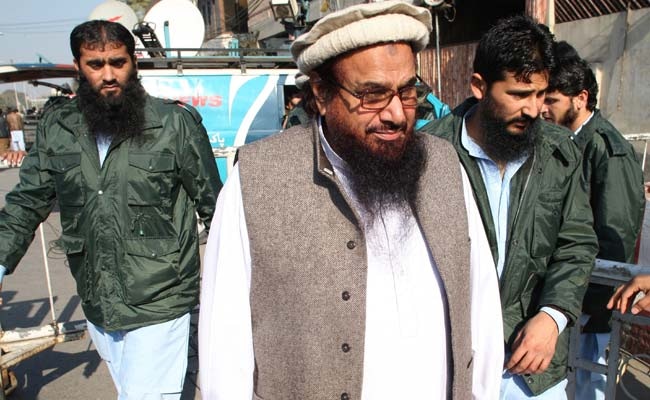
Terrorist Hafiz Saeed has told Pakistan's government to remove his name from the travel ban list
Lahore:
Hafiz Saeed, chief of terror group Jamaat-ud-Dawa has told the Government of Pakistan to immediately remove his name from a list that bars him from leaving the country. He claimed that he is not a security risk. In a letter to Interior Minister Chaudhry Nisar Ali Khan, the mastermind of the 2008 Mumbai terrorist attack, in which 166 people died, said: "A memorandum issued on January 30, 2017 placing 38 individuals should be withdrawn forthwith."
The government last month put Hafiz Saeed and 37 others of his terror outfits on the Exit Control List, preventing them from leaving the country. It also put Hafiz Saeed and four others under "house arrest" for 90 days for engaging in activities "prejudicial" to peace and security.
Additionally, the interior ministry put Jamaat-ud-Dawa and Falah-e-Insaniyat on a "watch-list" for six months. But the terrorist contended the government's decision saying: "The JuD has never been involved in any terrorist activity in (within) Pakistan." He also argued that no material has ever been produced by federal or provincial governments against him in a Pakistani court.
He cited an observation of a full-bench of the Lahore High Court in a 2009 case against him. The court had said: "In the present case the government is not in possession of any evidence that the petitioners are risk to the security of Pakistan and merely on the basis of the UN Resolution their liberty cannot be curtailed."
The government last month put Hafiz Saeed and 37 others of his terror outfits on the Exit Control List, preventing them from leaving the country. It also put Hafiz Saeed and four others under "house arrest" for 90 days for engaging in activities "prejudicial" to peace and security.
Additionally, the interior ministry put Jamaat-ud-Dawa and Falah-e-Insaniyat on a "watch-list" for six months. But the terrorist contended the government's decision saying: "The JuD has never been involved in any terrorist activity in (within) Pakistan." He also argued that no material has ever been produced by federal or provincial governments against him in a Pakistani court.
He cited an observation of a full-bench of the Lahore High Court in a 2009 case against him. The court had said: "In the present case the government is not in possession of any evidence that the petitioners are risk to the security of Pakistan and merely on the basis of the UN Resolution their liberty cannot be curtailed."
Track Latest News Live on NDTV.com and get news updates from India and around the world

